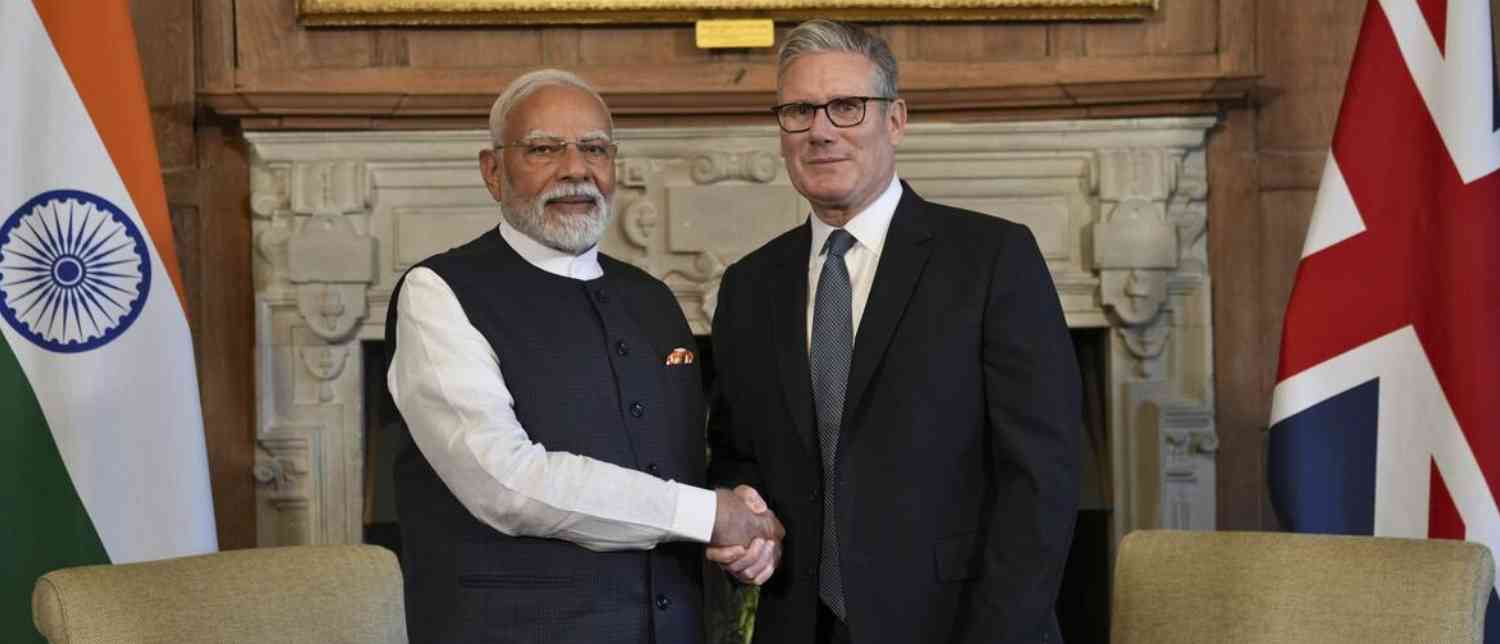UK Prime Minister Sir Keir Starmer has arrived in India for his first official visit since taking office, leading one of the largest British business delegations in recent years. The visit aims to deepen economic and strategic ties between the two nations, offering new opportunities for trade, investment, and collaboration in technology, green energy, and education.
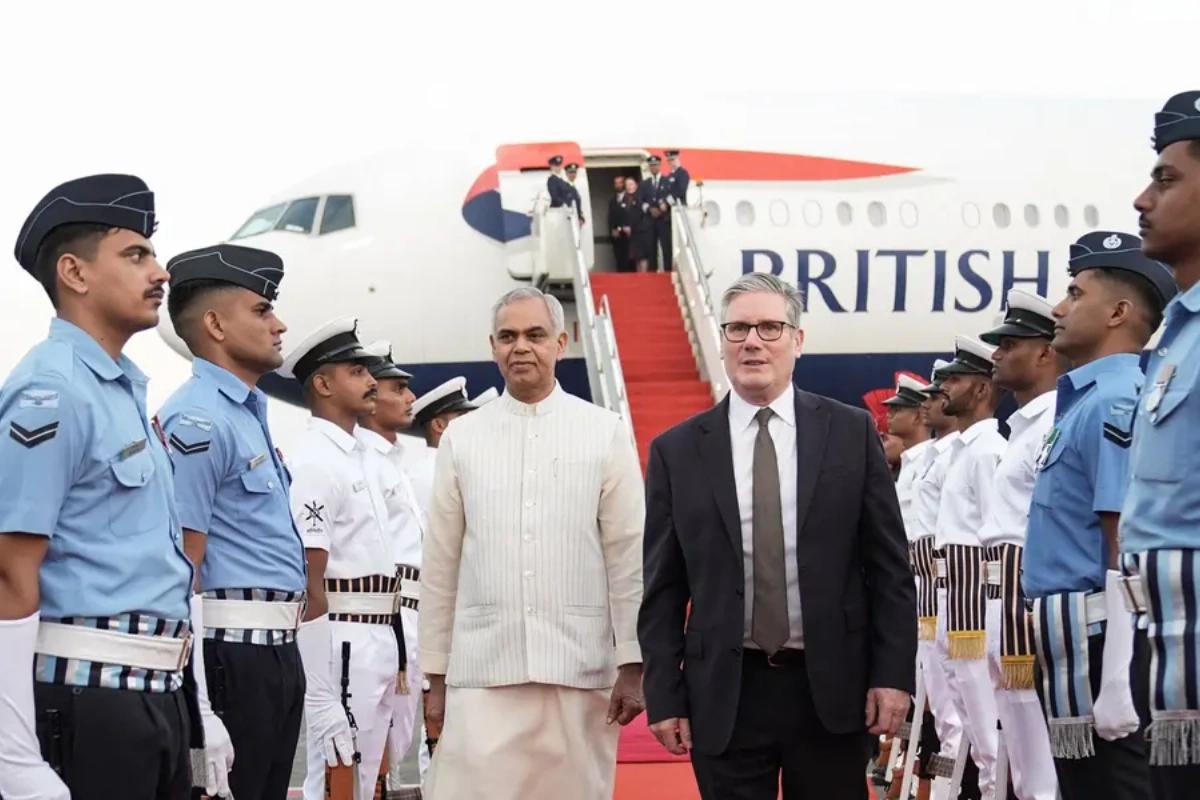
This comes at a time when both countries are looking to redefine their global partnerships — the UK after Brexit and India as a growing economic power in Asia. With over 50 senior business leaders joining Starmer on this trip, the visit underlines London’s intention to strengthen its relationship with New Delhi beyond traditional diplomacy.
The talks are expected to centre on a possible UK-India Free Trade Agreement (FTA), which has been under negotiation for several years. While progress had stalled over issues such as tariffs, services, and visa access, observers now hope Starmer’s government will bring a fresh approach.
British officials have said the Prime Minister’s focus will be on creating “a fair and modern deal” that benefits businesses and workers on both sides. India, as one of the world’s fastest-growing economies, offers tremendous potential for British exporters — from luxury goods to advanced manufacturing.
Similarly, the UK remains a key destination for Indian companies seeking to expand globally, especially in technology, finance, and pharmaceuticals. Both governments are expected to discuss ways to promote two-way investment and make the business climate more transparent and predictable.
During his stay, Starmer is scheduled to meet with Indian Prime Minister Narendra Modi and other senior leaders to discuss not just economic cooperation but also climate action, security, innovation, and education.
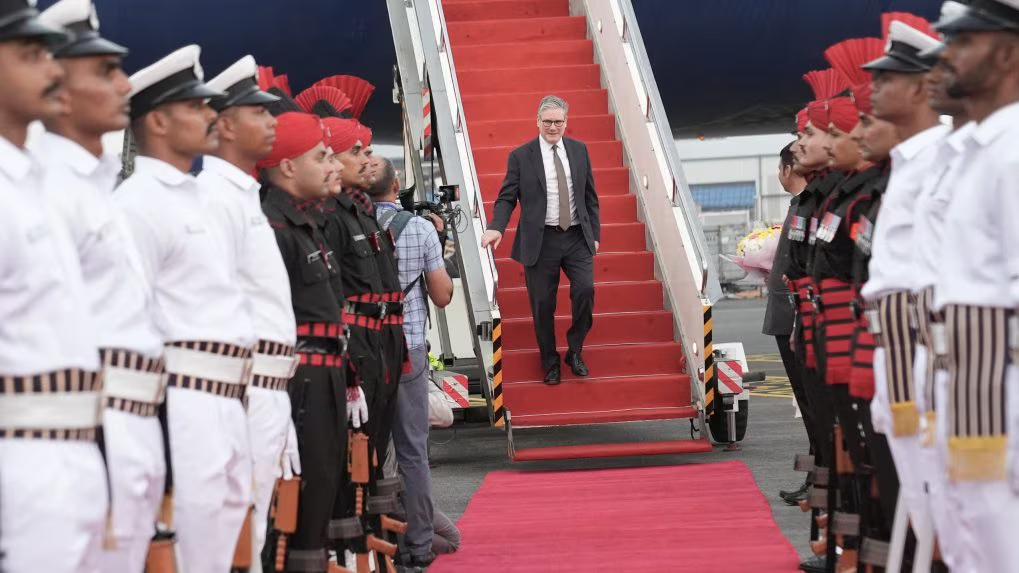
The visit includes planned sessions with university representatives and innovation hubs to explore joint research programmes. Education has always been a strong link between the two countries, with thousands of Indian students currently studying in the UK. Experts suggest that easing visa rules and improving collaboration between British and Indian universities could strengthen this bond even more.
In addition, both leaders are expected to talk about clean energy cooperation. The UK has been a strong supporter of India’s renewable energy ambitions, particularly its solar and green hydrogen missions. With the world moving towards sustainable solutions, partnerships in these areas could help both countries meet their climate goals.
Analysts believe this visit is more than just an economic mission. It also represents an attempt to rewrite the narrative of UK-India relations in the 21st century. For decades, the relationship has been shaped by historical and cultural ties, but today, both nations are focusing on mutual respect and shared benefits.
Starmer’s approach, described as “pragmatic globalism”, aims to position the UK as a reliable partner that values long-term cooperation. For India, closer engagement with Britain could support its ambition to become a global manufacturing hub and technological leader.
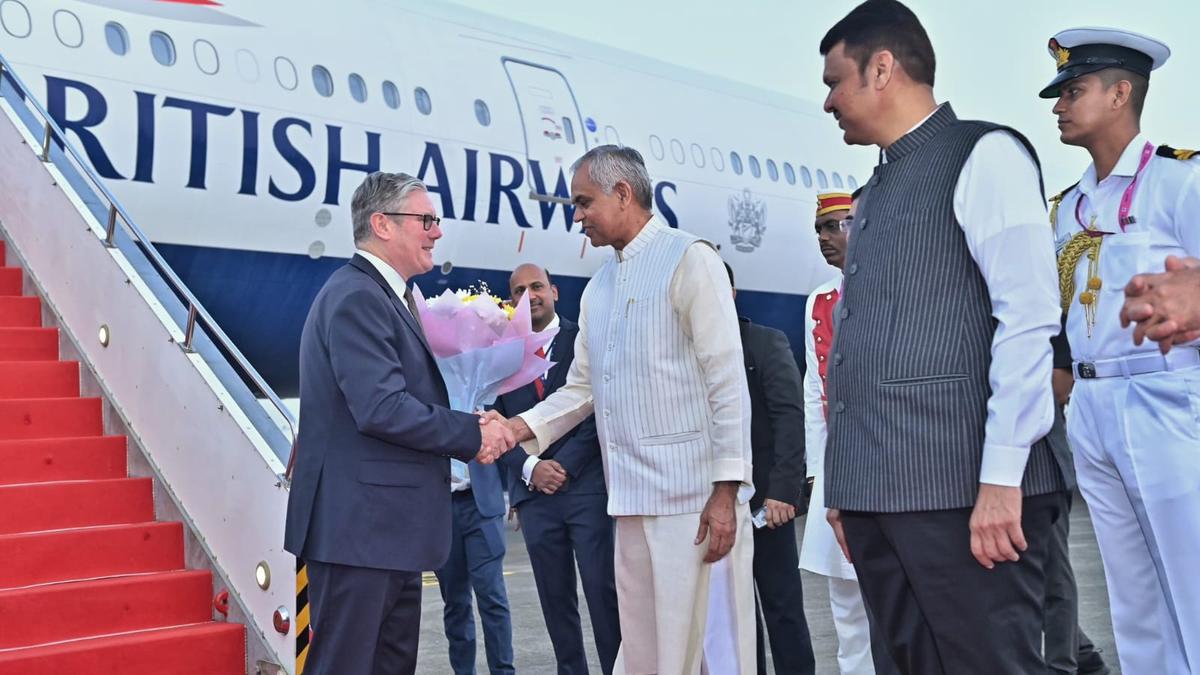
Dr Meera Sinha, an international relations expert, explains, “This visit shows a maturity in bilateral ties. Both countries understand that the old notions of aid and dependency are outdated. The relationship now stands on mutual advantage — trade, investment, education, and strategic trust.”
Despite optimism, several challenges remain. The FTA negotiations, though promising, could still face hurdles over sensitive issues like rules of origin, intellectual property, and agricultural imports. Similarly, movement of professionals between the two countries remains a point of tension.
On the global stage, shared positions on security matters — such as regional stability in the Indo-Pacific — will also test diplomatic flexibility. However, both sides have maintained strong cooperation in areas like counter-terrorism, defence technology, and maritime security.
Business leaders travelling with Starmer view the trip as an opportunity to rebuild networks after years of uncertainty following Brexit and the pandemic. Sectors like renewable energy, fintech, pharmaceuticals, and higher education are expected to see fresh partnerships being announced.
Starmer’s visit could mark a turning point for UK-India relations, transforming them into a “partnership of equals”. If successful, it could not only strengthen trade and investment but also encourage cultural and educational exchanges that bring people closer together.
As one British delegate remarked, “This visit is about friendship and future potential. Our two democracies share values, innovation, and ambition — and now, we want that spirit to show in our economic relationship.”
For both the UK and India, the message is clear: collaboration, not competition, is the way forward. In a world facing rapid change, the leaders of London and New Delhi seem ready to write a new chapter in one of the world’s most historic partnerships.
With inputs from agencies
Image Source: Multiple agencies
© Copyright 2025. All Rights Reserved. Powered by Vygr Media.

